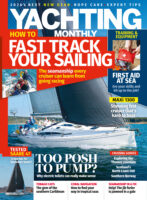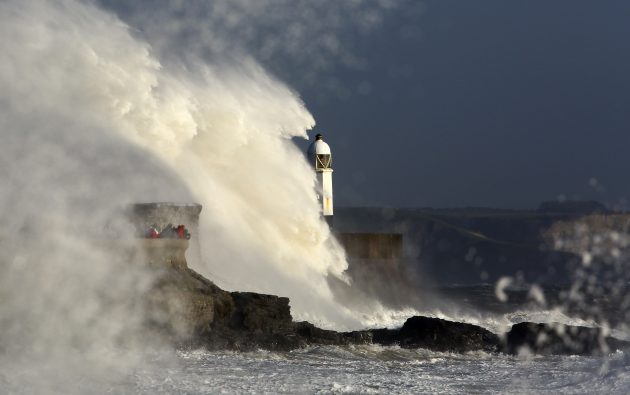Storm Ophelia has brought gusts of up to 70 mph to parts of the UK and the Republic of Ireland, where the crew of a yacht had to be rescued off Rosslare
Winds of up to 70mph are hitting parts of Scotland and England as Storm Ophelia continues to affect the UK.
A Met Office yellow warning for Central, Tayside & Fife in Scotland, North East England, South West Scotland, Lothian Borders, Strathclyde Yorkshire & Humber remains in place until 3pm today (17 October).
It is predicting 70 mph gusts over the far southeast of Scotland and parts of northeast England. The winds should be easing through the course of the day.
A flood warning has been issued for Dumfries and Galloway in Scotland, and 1o flood alerts are in place for England in North Cornwall, North Devon, Somerset, Bridlington, and parts of Cumbria.
Storm Ophelia left widespread disruption in Northern Ireland and the Republic of Ireland, where three people were killed yesterday (16 October).

A ship at anchor off of Carrigaholt on the West Coast of Ireland. Credit: PA Wire/PA Images
Thousands of homes are without electricity in Ireland, Northern Ireland and Wales.
In Ireland, Rosslare Harbour RNLI braced the strong winds to rescue three people from a 10-metre yacht yesterday morning.
The yacht crew issued a Mayday after trying to get to safety since the early hours of the morning. They had attempted to gain entry to a few harbours but were constantly pushed back by winds and tides.
Ten miles offshore from Rosslare and getting battered by the worsening weather, the yacht’s skipper issued a Mayday before being rescued by the volunteer lifeboat crew.
Conditions were described as “extremely challenging” with force nine winds and a six metre sea swell.
Continues below…
Wind warning for this weekend in the south
The Met Office is warning that an intense low pressure system is expected to bring strong winds to southern Britain…
Things to practise in harbour – setting storm sails
James Stevens explains which skills are best to perfect while you have plenty of time to do so. This week,…
Cleaning the seas: The UK gets its first Seabin
The UK's first Seabin, which is capable of collecting half a tonne of plastic bottles a year, has been installed…
The lifeboat carefully manoureved alongside the yacht before establishing a tow.
The lifeboat crew made slow progress in the heavy weather but brought all three men safely ashore after 2pm at Rosslare Harbour.
Commenting on the call out, Rosslare RNLI Lifeboat Operations Manager, Dave Maloney, said he was extremely proud of his crew.
“When the pagers went off this morning, as the storm was beginning to take hold, we had seven lifeboat crew down immediately to the station with a further six in reserve. Conditions were very unpleasant out there and we needed to get those three men to safety as quickly as possible,” he said.
“The crew of the yacht had been trying to come ashore since the early hours but were pushed back and ultimately unsuccessful. When the lifeboat crew reached them they were side on to the weather, taking a ferocious pounding and in danger of getting overwhelmed. I think if another hour had passed this story may not have had such a successful outcome,” added Maloney.
Across the UK, the were reports of a red-looking sun and reddish, sepia skies, caused as a result of ex-Hurricane Ophelia pulling in tropical air and dust from the Sahara, as well debris from forest fires in Portugal and Spain.

The sepia sky over a park in south London. Credit: SIPA USA/PA Images
In a media release, The Met Office said: “The same southerly winds that have brought us the current warmth have also drawn dust from the Sahara to our latitudes and the dust scatters the blue light from the sun letting more red light through much as at sunrise or sunset.”
The arrival of Storm Ophelia coincided with the anniversary of the Great Storm, which happened on 15-16 October 1987.
The storm saw wind gusts in excess of 100 mph, and resulted in the loss of 22 lives, around £1 billion worth of damage.
There was widespread disruption across southern England.
It has gone down in history as one of the worst UK storms since 1703 and will obviously be remembered for Michael Fish’s now famous television broadcast.
The Met Office said the Great Storm also served as a “wake-up call for them, and “helped identify gaps in severe weather forecasting capability and highlighted the need for better communication with partner organisations such as emergency services and the public in general”.







